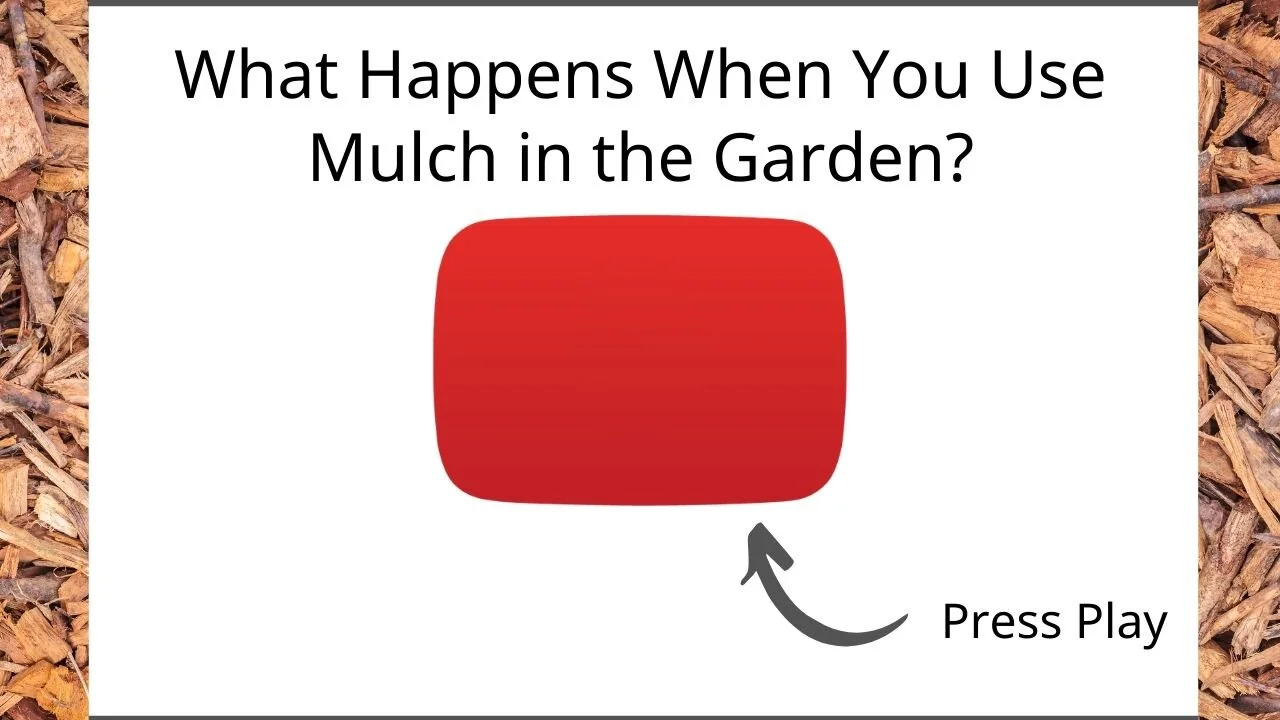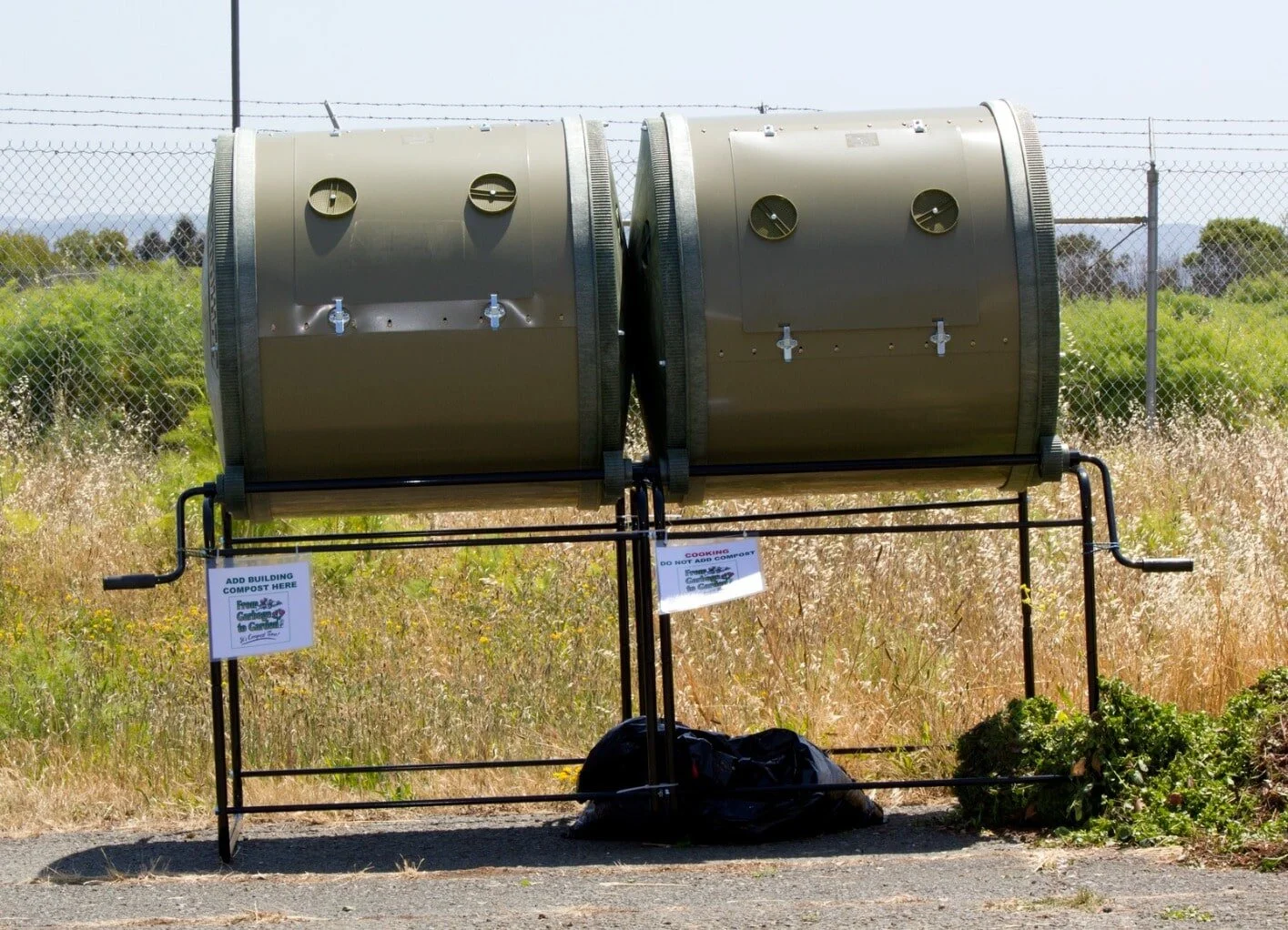Table of Contents
I love mulch. Feels strange to actually type that, but I’m a huge mulch fan. Last summer we planted a mini orchard then gave the gaps between trees a nice thick layer of mulch. It looks great, and our cats appreciated it too.
We just bought the biggest bags of locally sourced mulch we could fit in the car. But what if you aren’t covering large areas like we did? Maybe you just want a bag to dip into now and then for your potted plants?
In this guide, I’ve put together the top choices available, plus I’ll share some pointers on how to pick the best ones for your plants.
The 5 Best Mulches for Your Potted Plants
Forget about rubber mulch and all those synthetics out there. When picking this list, I deliberately avoided anything from recycled tires, unknown wood sources, or mulches containing harsh chemicals.
Best Mulch for Beginners — EZ-Straw Seeding Mulch
This is the best mulch for beginners. This EZ-Straw Seeding Mulch is an organic product, but it’s processed and packaged to make your experience as easy as possible.
This 2.5 cubic foot bale is cut for easy application. When you open a bag, it just goes on and on and on. It’s much better than buying a bale of ordinary straw. It covers an impressive area of 500 square feet.
Set aside your environmental concerns as this mulch is biodegradable. This means you won’t need to clear it away after the seed establishes, unlike plastic mulch. Just leave it to decompose in the soil.
Tack bonding enhances this product by making the straw stick together, which improves results. It accelerates germination, leads to less watering, and promises 99 percent weed-free plants. The tackifier (bonding agent), which is actually guar gum, also helps to protect grass seed from the wind.
You can easily store this product in its bag outside or inside as it’s made from UV-protected plastic.
Pros:
Processed straw is easy to apply
Tackifier enhances mulch properties
UV-protected plastic bag
Biodegradable mulch
Cons:
Might be susceptible to growing weeds
Best Organic Mulch — Window Garden Fiber Potting Mulch
What a lovely reddish-brown color this mulch has! It works great for finishing touches to your flower beds, or your most prized potted plants. Its cinnamon color creates contrast with the foliage and makes them pop. Aside from being quite attractive, I feel there are also plenty of benefits.
Made mainly from coconut husks, it’s lightweight. So you can put your heavy-lifting worries at ease if you suffer from a bad back or if you are a senior with arthritis.
This mulch has many benefits for your potted plants: mainly minimizing soil splash and moisture retention. Compacted soil is often a problem with container gardening, but mixing in some mulch in between the soil reduces compaction. It improves aeration and prevents roots from rotting. It can even be used in your orchid pots.
Of course, it also serves the typical mulch duties, such as preventing weeds and soil mold.
Pros:
Good quality mulch
Pretty reddish-brown color
Lightweight yet keeps soil in place
Very good moisture retention and aeration properties
Stores well
Cons:
Disappointing for some who need a lot of mulch
Most Fragrant Mulch — Blommer Cocoa Shell
We all love a bar of chocolate, right? This mulch is made from the husks of cocoa beans, so the smell should be simply amazing.
This mulch enhances the permeability of your soil, allowing for more water to absorb. At the same time, it keeps the ground well-drained, so it doesn’t turn soggy and harm your roots.
In addition, there are absolutely no additives, and a 5-gallon bag can cover an area of 2 cubic feet. Being a natural product, this mulch retains its attractive brown color.
If you are a pet owner though, you might want to reconsider if your pooch can get into your lawn or potted plants. Because it’s made from cocoa shells, your pet might be interested in getting a taste of that. Beware, it could make Fido unwell.
Also, this particular mulch may be susceptible to mold growth. If you aren’t getting much sun exposure, it may grow molds.
Pros:
Chocolate fragrance
Attractive brown color, which looks even better when wet
Doesn’t blow away easily
Proper mulching properties
Cons:
May attract fungus and gnats
May grow mold
Dogs might want to eat it up
Best Natural Insect Repellent — Ameriscape 55553 Cedar Mulch
Cedar is one of the best mulch types you can use for your plants. This Mulchex from Ameriscape is made from high-quality cedar bark and wood chips, with zero fillers.
The warm golden color will do wonders to beautify your potted or outdoor ground plants. It’s also very functional as it’s insect resistant and therefore especially helpful if you are wrestling with some infestation problem.
As with the other mulches on this list, it works on minimizing root rotting and also helps with temperature control during both hot and cold weather.
Pros:
Great quality; uses natural cedar bark and wood with no fillers
Natural light yellow color
Smells great
Insect-resistant
Rot-proof
Works as insulation during winter
Cons:
Because it’s a natural insect repellent, it may keep beneficial bugs like ladybugs away, too
Best Coco Fiber — SpongeEase
This package contains coco fiber mulch made up of coconut husks and chips. When you add water to the packaged block, it rehydrates to fill up 50% of the bag. Once it’s plumped up to its natural state, it stays fresh-looking for many months. The color is long-lasting and will stay the same for several seasons.
Because it is made from coconut matter, it’s 100% natural and organic. Its scent is more subtle than cedar chips. If you want a strong clean scent like cedar, this won’t be for you.
Coco fiber mulch is a good choice because it is biodegradable yet degrades slowly. It improves soil structure and aerates the soil in your pots and containers. It can hold a bit of water but not so much that your plants will become waterlogged.
Pros:
All natural and eco-friendly
Long-lasting all around
Looks great on potted plants
Nice subtle scent
Compact packing makes it easy to use and store
Cons:
The photo is misleading; makes buyers think it will rehydrate to more
Why Should You Mulch?
Mulch can help insulate your soil from coldness, which is crucial for outdoor and indoor plants as well. Cold weather can prevent your roots from absorbing the water and nutrients they need.
But roots are not the only guys that love mulches, beneficial worms, fungi and bacteria also have fond feelings. Mulch creates a better environment for them to thrive and hence, allow for healthier plants.
What’s more, it acts as a preventive measure for soil-borne diseases by creating a barrier between the foliage of the plant and the soil.
All this makes it necessary for you to strengthen your soil with mulch. It protects your plant, encourages growth, and will lead to a better harvest.
How to Pick the Best Mulch
There are a number of factors that go into mulch selection—source, size, characteristics, and even color. The latter is actually more important than you’d think.
Research has indeed proven that red mulch works better for tomato yield and strawberry taste than black mulch. As a result, color is not just an aesthetic choice for the best mulch, despite that being the common drive.
As for the organic versus inorganic debate, each side has its pros. This is because organic mulch decomposes into your soil to add nutrients. It’s also more effective in the usual functions concerning soil moisture.
Inorganic mulches are not useless. They can be more decorative and are generally less expensive. However, you’ll need to monitor your soil’s pH and temperature levels.
If style is your number one priority, then go for inorganic mulches to get a more specific and longer-lasting look. However, for produce growers, organic mulch would be more suitable.
Watch These Mulching Videos
For you container planting and indoor gardening enthusiasts, here is a very informative video you need to see.
And if you also do some outdoor gardening, our favorite guy from Self-Sufficient Me shows off what mulch can do for your raised beds and garden plants.
Read More Gardening Tips



















